Full Camino Le Puy Way
- Walk the complete Le Puy Camino from le Puy en Velay to St Jean Pied de Port
- Pass and stay in many "Les Plus Beax Villages de France" such as Conques and Estaing
- Find inner peace and tranqulity within these glorious and remote landscapes
- Exploring a plethora of landscapes, from the Aubrec plateau to the Lot Valley
- Arriving in the medieval St. Jean Pied de Port at the end of an unforgettable journey
Gallery
Itinerary
Day 1 Arrive in Le Puy-en-VelayArrive in the historic city of Le Puy-en-Velay which has been a pilgrimage centre since the Middle Ages. Spend time here exploring the sites within this city that is set in a volcanic plateau and is famed for its rocky peaks which rise out of the valley. After checking into your comfortable hotel, why not climb the 267 steps up to the Chapel of St Michael d’Aiguilhe, built by Godescalc who made the pilgrimage to Santiago in AD951. Also view the Romanesque cathedral and wander through Le Puy’s narrow, characterful streets.

Situated close to the old town in Le Puy-en-Velay, this hotel offers 45 modern rooms and an on-site bar. It is a 10-minute walk from the train station. A buffet breakfast is available each morning and includes pastries, marmalade, ham and cheese.
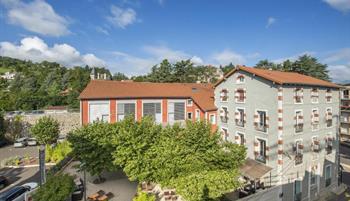
Modern and design, the Appart'Hôtel des Capucins welcomes you in the heart of Puy en Velay and offers fully equipped rooms and duplexes. This bright, modern hotel is a 10-minute walk from Notre-Dame Cathedral in Puy-en-Velay
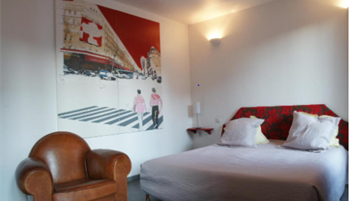
Discover Le Puy en Velay, Hotel Regina is located at the foot of the historic centre and is the ideal place to stay and explore the city.
The walk today begins at the cathedral and from here, and as you follow the trail, you will see wonderful views over the whole area. This morning you will cross the Velay, an area famous for its lentils and black sheep. Later this afternoon arrive in St Privat d'Allier where you will spend the night.
Ascent: +578m (1896ft) / Descent: -380m (1246ft)
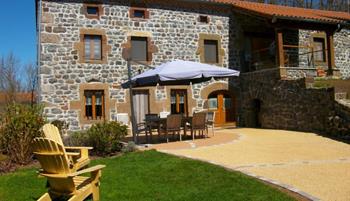
Le Clos Des Pierres Rouges is the story of a crush on a wild, almost mystical country and land of legendary stories crossed by centuries-old paths. At the crossroads of the Way of Saint Jacques de Compostela, the Gorges de l'Allier and the Route de la Bête du Gévaudan, Sylvie and Thierry welcome you to Pays Vellave, comfort and refinement are offered to you in a green setting.
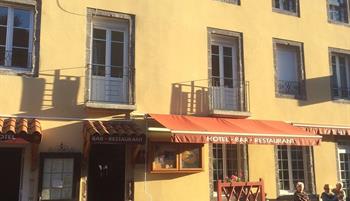
Located in the heart of Saint-Privat-d'Allier, La Vieille Auberge is a cosy hotel with beautiful views of the village and rocky surroundings, and boasts a large restaurant, and 19 fully-equipped rooms.
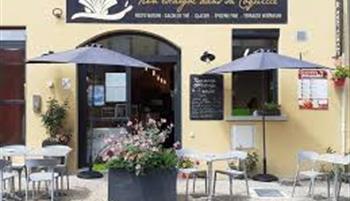
Un Escargot dans sa Coquille is a lovely and welcoming accommodation and restaurant.
During today’s walk you will pass through widely differing countryside, such as the Allier gorges and a volcanic plateau of great natural beauty. Climb a tiny chapel dedicated to St James perched atop a rocky belvedere and past the Madeleine Chapel, which was carved out of the rock in the 17th century.
Ascent: +639m (2096ft) / Descent: -539m (1768ft)
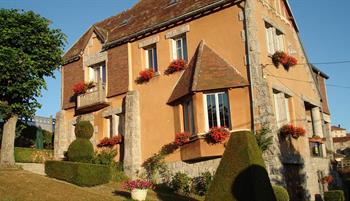
Les Gabales is a charming guesthouse, offering comfortable, traditionally decorated rooms and delicious food.
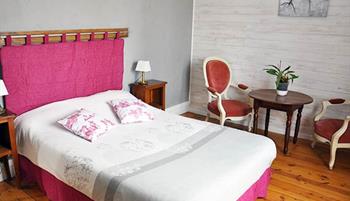
In this mystical region of the beast of Gévaudan, the newly renovated house offers 4 guest rooms, one of which can accommodate up to 3 people and a twin room (twin beds). In a site with unspoiled landscapes, you can, according to your desires, enjoy the calm, sports activities but also tasting of local products.
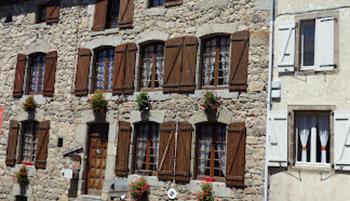
La Dentelle du Camino is a friendly gite, offering comfortable rooms and lovely food to the pilgrims on the Camino Le Puy.
There is a drying area available. There is also a washing machine available to use for a small fee.
Today you discover the Margeride Plateau with its characteristic villages, secluded hamlets, ancient stone crosses and pastures hemmed in by stone walls. Each village has charming features such as granite houses with carved doorways and cottage gardens. 1 km off the main track, you will come to the village of Les Faux and your accommodation for the night.
Ascent: +539m (1768ft) / Descent: -372m (1220ft)
Experience the peace and authenticity of the region in the hamlets of Faux.In this natural setting choose your room, cozy and comfortable with bathroom and toilet, television and telephone.
This morning continue across the plateau of the Margeride as far as Aumont, which is the gateway to the Aubrac. Between Le Rouget, which takes its name from the typical red-roofed houses of the area. See pretty hamlets, and churches with ‘comb-style’ belfries, before arriving in Aumont Aubrac, a small town and where you can see the former Benedictine priory and Romaneque church of Saint Etienne.
Ascent: +364m (1194ft) / Descent: -439m (1440ft)
Hotel Prunieres is a family run hotel with a great atmosphere.
Charming and comfortable hotel on the Camino.
Chez Camillou is a lovely hotel marrying modern decor and traditional cuisine, offering comfortable bedrooms, delicious local food and a spa.
Today is long day of walking once more but it is worth it as you leave behind the Margeride Plateau and begin to cross the Aubrac Plateau, a wide expanse of pastures, old barns, drystone walls, and swathes of wildflowers, depending on the season. Later arrive in Nasbinals, where there is a superb 14th century Romanesque church built of brown basalt.
Ascent: +375m (1230ft) / Descent: -248m (813ft)
A delightful family run hotel in the centre of Nasbinals.
Begin your walk by making your way down the Boraldes Valley and then pass through the village of Aubrac, which was founded in 1120 by a Flemish knight, Adelard de Flandres. Then pass a large wooden cross and head along a grassy track which becomes a walled lane and walk into the hamlet of Belvezet. Cross the Aude and descend steadily into St Chely d’Aubrec, your final destination for today.
Ascent: +220m (721ft) / Descent: -582m (1909ft)
Set in a verdant valley, St Chely d’Aubrac has been welcoming pilgrims for a very long time. For four generations, this family-run hotel has built up its reputation for its warm welcome & gastronomic specialities.
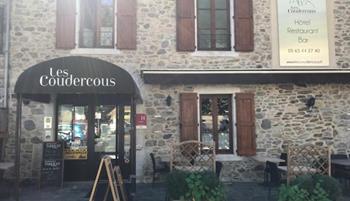
An old converted house with a great restaurant in the heart of the countryside.
At the heart of the village of St Chely d’Aubrec is the church, extended in the 19th century and which holds two incredible altar pieces, a copy of the painting The Descent from the Cross by Rubens and a 14th century bas-relief representing Christ and his Apostles, exhibited at the Musée du Louvre in 2009. See these exquisite pieces of art before crossing the old bridge over the Boraldes River and continuing into the the heart of the Lot Valley.
Ascent: +279m (915ft) / Descent: -721m (2365ft)
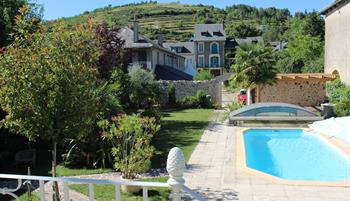
The Garden of Eliane is a 19th-century Aveyronnaise house located in the entrance of Saint-Come d’Olt, one of the most beautiful villages of France. It has a private garden and a swimming pool with six superb bedrooms. Each of the six rooms- wonderfully restored in 2002- has its own personality with private bathroom and from 2 to 4 beds. A generous breakfast is included each morning.
At the foot of Aubrac, La Bisquine de Jean is a comfortable Bed and breakfast located on the pilgrims way to St Jacques de Compostela. Guests can enjoy cosy rooms with breakfast.
Based in a convent dating back to the 12th century (belonging to the religious order of the Ursulines de l'union Romaine), this guesthouse offers a true experience of pilgrimage hospitality.
Today’s incredible walk between St Côme d’Olt and Estaing in the upper valley, is a UNESCO World Heritage site. Pitched roofs of hand-hewn tiles called lauzes blend in harmony with bejeweled Romanesque churches along this pilgrim route to Compostela. Ancient vineyards here are spread out along terraces and on arrival in Estaing you cross the famous Pont Gothique and see the wrought iron cross and the statue of Francois d’Estaing.
Ascent: +446m (1463ft) / Descent: -494m (1620ft)
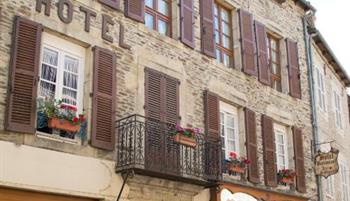
The hotel was remodelled to provide each and every guest with a pleasant and comfortable stay at the heart of the village.
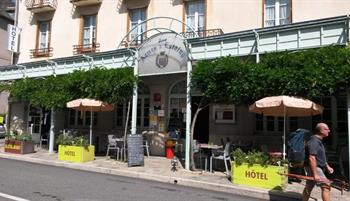
For three generations the management of the "Armes d'Estaing" have offered very comfortable rooms at this accommodation in the heart of the Lot Valley. A wide variety of
regional specialties & traditional dishes are on offer and can be eaten in front of a large open fireplace in the rustically decorated dining room, whilst enjoying a wonderful view of the Gothic bridge and river located in one of the most beautiful villages in France.
This morning includes a 350 m ascent to Golinhac were you will find the Church of St Martin set on the site of a 9th century Benedictine abbey.
Ascent: +498m (1633ft) / Descent: -154m (505ft)
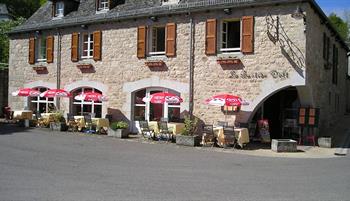
This accommodation is in a renovated presbytery, with beautiful views of the surroundings, and delicious menus.
Auberge La Mantinée is very peacefully situated in a rural setting. The area is characterized by hills, just along the GR65, better known as the Camino Le Puy Way. It is a newly built property with nice rooms and is located near a village less 200m away from shops, a cafe and a restaurant. Enjoy its large back gardens, flowers and meadows.
From Golinhac pass through small hamlets and spot wooden balconies of old riverside tanneries, window boxes full of colourful geraniums and prosperous bourgeois town houses. You then walk through woods climbing quite steeply and then veer off on a lane that directs you alongside the woods and which undulates between fields. Pass Fontromieu and the Church of Saint-Marcel before arriving in Conques, a village that rises steeply from a conch-shaped valley.
Ascent: +358m (1174ft) / Descent: -717m (2352ft)

In the heart of the medieval village of Conques, the Auberge St-Jacques welcomes you to a peaceful and comfortable spot, across from the abbey church of Sainte-Foy. We offer you rooms with bath, telephone and TV, a small lounge, bar and restaurant, where you will enjoy the gastronomic delights of Aveyron cuisine.
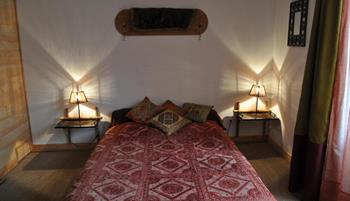
On the GR 65 and 300m from the heart of this magnificent village and its abbey, classified as a World Heritage Site by UNESCO, the Castellou with its large wooden tables and its original fireplace welcomes hikers, pilgrims or simply the curious ready to discover Conques in its shell with its alleys, its ancestral houses with slate roofs in a friendly and convivial setting.
Today begins with a gradual climb to the Chapel St. Foy, built next to a spring whose natural water was supposed to cure eye complaints. Set out on the next part of the trail to St. Roch Chapel, where the statue of this saint carries a pilgrimage staff and from where, a mile or so later, you reach the village of Noaillhac. After Roumegoux, you leave the GR65 to follow the Chemin des Cretes, for a more direct route to Livinhac.
Ascent: +735m (2411ft) / Descent: -817m (2680ft)
Our 4 spacious rooms are adapted to the wishes and needs of pilgrims and hikers. Each room has a private bathroom (shower, sink and toilet).
This Chambres d'Hotes is charming and has 3 bedrooms in total. Breakfast can be eaten on the terrace which is surrounded by rose bushes.
You will be warmly to this Chambre d'Hotes in the countryside.
En route to Figeac a place full of rich history you will pass through the picturesque hilltop village of Montredon, in which stands the Church of St Michael where you can view 14th century mural paintings. You can also see the 11th century Church of St Felix where there is a tympanum of Adam and Eve with a serpent and a tree.
Continue on through the countryside (you are now in the Lot region) before arriving into the historic town of Figeac, founded in 830 around a Benedictine abbey and for the past 20 years recognised as one of France’s historic towns by the Ministry of Culture.
Ascent: +408m (1338ft) / Descent: -441m (1446ft)
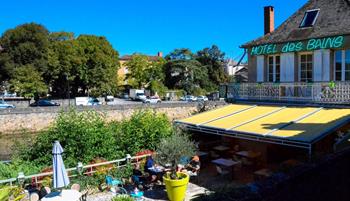
This hotel is located in a former Public Baths dating from the end of the 19th century, in a protected area, near the historic town centre The Hôtel des Bains has 19 recently refurbished rooms, most of them air-conditioned, all equipped with direct line telephone, ADSL and WiFi connections.
You will have to begin walking early today as this is the longest walk of your tour at 30km. Have a big breakfast as sustenance, then begin by taking a path uphill to the L’Aiguille du Cingle. This unusual obelisk-type structure is said to have been built as a beacon guiding pilgrims. However another story relates that they were used as boundaries between abbot’s territories. There is one other structure such as this in France and it is to the west of Figeac.
Continue walking past Faycelles and into Béduer. It's is here where the landscape changes and you will come across many dolmens (megalithic tombs from the Neolithic period), plus dry-stoned walls and stone shepherds huts. The landscape here is quite wild and depending on the season, you will encounter carpets of orchids and the scent of herbs and wild strawberries.
Later arrive into Cajarc, a village that sits on the edge of the River Lot and that rose to fame due to barges that took spices, wine, wood and saffron along the river.
Ascent: +562m (1843ft) / Descent: -607m (1991ft)
La Peyrade is located in the village of Cajarc, on the River Lot. Offering comfortable guest rooms with views of the village, a balcony or terrace and free Wi-Fi in each.
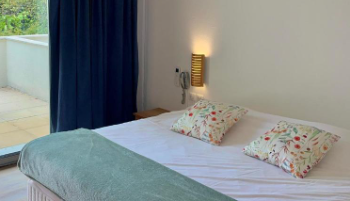
After yesterday’s long walk today is much easier and you enjoy walking at your own pace through this lovely rural area of France. First follow the meandering River Lot before arriving on the lush plain of Gaillac. Today you will cross the Quercy de Limogne. This area becomes very remote, so remember to take plenty of water and a packed lunch with you! After a lovely day of walking past dry stone walls and huts and fields of purple orchids that are grown to produce saffron (these flowers bloom in the autumn). Shortly you will arrive in Limogne-en-Quercy and check in to your welcoming accommodation.
Ascent: +340m (1115ft) / Descent: -184m (607ft)
You will be welcomed warmly to this small chambre d'hote, situated in the countryside.
This particular stage of the walk takes us off the GR65 for a while so that we can spend an overnight in Lalbenque. First head through the hamlets of La Plane, Mas de Dégot and Mas de Vers. En route you will also see many more dolmen, dry-stone walls and shepherds huts, which are very typical of this area. Lalbenque itself has a church which was built in 1090 and is famed for its 17th century gilded wooden alterpiece. They also hold has a weekly black truffle market (every Tuesday) and a farmer’s market on a Saturday.
Ascent: +167m (547ft) / Descent: -190m (623ft)
A small family-run gite where the owners take great pride in treating their guests with the utmost attention.

Enjoy a warm and serene stay at this pretty B&B situated in Lalenque - renowned for its production of Quercy Black Truffles!
Today is your final day of walking through these beautiful and ancient rural routes of France. Firstly walk along a typical walled and semi-shaded lane. It is important to pay attention to signposts on this particular section. On arrival in La Marchande you will walk downhill from here into Cahors, which is surrounded on three sides by the River Lot and an important stop on this pilgrimage route.
Take time on arrival to discover the varying sights here such as Cathedral of St-Etienne with its amazing cloisters, several interesting churches and the Pont Valentré, the finest fortified medieval bridge in Europe.
Ascent: +205m (672ft) / Descent: -352m (1154ft)
This 2* hotel is situated in the town centre, near the train station and the famous bridge Valentré. The hotel holds recently renovated rooms, equipped with TV and free WiFi.
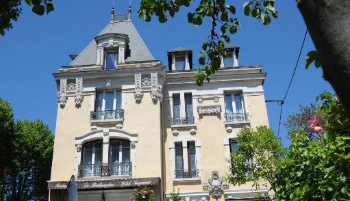
Historic accommodation close to the town centre.
La Chartreuse Hotel is 3 star accommodation, with ammenites such as a seasonal outdoor swimming pool, a garden and a terrace. With a 24-hour reception, the hote is located 5-minutes from the center of Cahors. There is free WiFi and a shared lounge available, and all rooms offer a desk, wardrobe, flat screen TV, and a private bathroom with free toiletries.
Cross the medieval bridge of Pont Valentré and climb the staircase to the cross of Pech d’Angely from which you can take your last look at Cahors before setting off on the trail to Labastide-Marnhac. Continue along uplands and through woodlands passing the hamlet of Baffalie before arriving in Lascabanes, a prosperous village and today's destination.
Ascent: +428m (1404ft) / Descent: -303m (994ft)
Le Clos de Gamel is a small hamlet made up of white stone houses and barns entirely restored in the style of the local tradition. You will stay in the guest room with an en suite bathroom and a mezzanine bedroom. There is also a large living room with a private terrace. If you fancy a dip after your day of walking there is also a swimming pool.
Au Chemin de Traverse comes with beautiful views, located in the centre of Quercy Blanc, near the villahe of Lascabanes. The hotel offers an open kitchen, with a large fireplace along with an above-ground swimming pool with views of the valley. The hotel has free Wi-Fi and internet access. The rooms also come with a hairdryer and a heater.
Head towards Rouillac which you pass on your right hand side. Emerge briefly onto an open plateau before arriving in Montlauzen and into the department of Tarn et Garonne. Lauzerte is next, a bastide hill town dating from the 12th century. See it’s medieval houses and two churches, one of which has a modern statue of St James as a pilgrim inside.
Ascent: +283m (928ft) / Descent: -126m (413ft)

An independent and family establishment that has 9 rooms and offers a warm welcome to pilgrims. With its pretty terrace, pleasant in fine weather, and its dining room in warm and bright colors, the Hotel du Quercy welcomes you all year round in Lauzerte. Frédéric Bacou, member and co-president of the Association des Restaurateurs du Tarn-et-Garonne (82) offers regional cuisine, made from fresh and seasonal products, benefiting from the Label Fait Maison.
Cross three bridges, then pass a dovecote and the Church of Saint-Sermin-du-Bosc which was restored in 1991 and onwards to Durfort. Along this particular stretch of the route, locals put out big jugs of cold water along the route for travellers and pilgrims, which you can stop and drink when you are thirsty. Then descend to a stream and walk up to a ridge before arriving in Moissac which is dominated by it’s Abbey Church of St Pierre.
Ascent: +597m (1959ft) / Descent: -740m (2428ft)
A beautiful family run hotel offering great hospitality, delicious food and comfortable rooms. If you arrive on a Sunday, Monday or Bank Holiday please could you call to advise approximately what time you will arrive (after 2pm).
Overlooking the main square, this casual-style hotel is a 4-minute walk from Saint-Pierre de Moissac Medieval Abbe
This morning the trail takes you along the River Tarn, cross a lockgate and then continues onto Boudou, from which there is a viewpoint over the surrounding countryside. Next walk through the hamlet of Timbrune before arriving in the delightful village of Auvillar which has a charming cobblestone plaza and a medieval circular market. This town overlooks the River Garonne and is classified as one of France’s Most Beautiful Villages.
Ascent: +77m (252ft) / Descent: -34m (111ft)
A lovely hotel owned by a friendly and attentive couple. You will really enjoy the friendly service in this comfortable hotel.
Chambres d'hôtes Cap du Pech is a comfortable guest house in Auvillar known for its friendly service from the couple who own it. This guest house offers access to a lovely swimming pool, free WiFi, and a barbecue.
As you depart from Auvillar walk along the Rue de l’Horloge and under the archway beneath the clock. Entering the Gers region you then walk through the quaint villages of Bardigues, St Antoine, and Flamarens where you can see its12th century castle, part of which was destroyed by fire in 1945. The undulating countryside in this area consists mainly of cornfields and row upon row of sunflowers. After a picnic lunch and perhaps some refreshments in a local café you arrive into Miradoux, the oldest bastide in the Gers.
Ascent: +434m (1423ft) / Descent: -301m (987ft)
Pascale welcome you warmly in her guest house in the nice village of Sainte Mère, 5 kms away from the GR
Customer must phone the hotel owner the day of their arrival in the morning, for him to pick them up at Castet Arrou and transfer to the hotel.
Today is your final day of walking through these beautiful and ancient rural routes of France. Depart from Miradoux this morning and walk past the Chateaux de Fieux and then Castet Arrouy, which means red castle and originally the site of a small fort. Continue past the church and walk along grassy tracks, through farms and past a very large wayside cross before arriving in Lectoure. As today is a relatively short walking day you should have time to explore this town which was once an important stopping point on this pilgrimage route. It sits high above the Gers River and has a 15th century cathedral built after Louis XI destroyed the previous one. It also has a striking tower with a round turret attached to the bell-tower.
Ascent: +227m (744ft) / Descent: -257m (843ft)
Family run hotel with a lovely swimming pool. Clothes washing facilities available.
This morning head firstly towards Marsolan, where you can find the remains of l’Hôpital St Jacques at the entrance to the village. It is worth stopping here as the view from the terrace over the Auchie Gascon and the surrounding countryside is superb. Once past Marsolan continue on following a track downhill until you come across the Chapelle d’Abrin, a former commandery of the Knights Hospitallers of St John of Jerusalem and now a private house.
Pass a lake and go through some woods, before arriving in La Romieu, which takes its name from the romieux or pilgrims that used to pass through. This village has an enormous church comparative to its size, which indicates it’s former importance. The cloisters in the church are well worth a visit.
Ascent: +289m (948ft) / Descent: -268m (879ft)
You will be warmly welcome into this B&B whose architecture is typical of the region.
On departing from La Romieu, and as you walk, there will be terrific views over the surrounding countryside as in this part of La Gers the landscape is very open. After a short climb you will reach the small village of Castelnau-sur-l’Auvignon and the Chapelle Sainte-Germaine de Soldanum, the remains of a former monastery. Here is a good place to take a rest before continuing onto Condom, a medieval town.
The highlight in Condom is the Cathedral of St Pierre, built at the end of the 14th century, which has an ornately carved entrance and the outside of which is slightly unusual in style. Take time here to wander through the narrow streets of the old town, perhaps stopping in a local café for an aperitif.
Ascent: +244m (800ft) / Descent: -348m (1141ft)
Hotel with beautiful gardens and a large swimming pool.
Le Carbon is your first point of call today and it is perhaps worth taking a slight detour (15 minutes in each direction) to get to the tiny fortified town of Larresingle. This was the fortress of the Bishops of Condom in the Middle Ages and when you are here you will see that little has changed and it is like you are back in medieval times.
Today you will also cross the Pont d’Artigues, originally a Roman bridge over the River Osse and also pass by the oldest church in this region, Eglise de Routges. Notice the small door at the side of the church which was used as an entrance by Cagots, an outcast population who lived segregated lives until the end of the 19th century due to the fact that they may have been leprous, unclean, or bearers of evil. Arrive in Montreal du Gers, your overnight stop.
Ascent: +253m (830ft) / Descent: -235m (771ft)
Victorian Lodge is located in the commune of Montréal, and offers free WiFi, a restaurant, a garden, and a terrace with city views.
The charming guesthouse is located in the heart of Montréal-du-Gers, right on the picturesque village square. Within walking distance, you’ll find all amenities such as restaurants and local shops – an ideal starting point to explore the Gers region, its vineyards and culinary delights, or to follow the GR65 route on the Camino de Santiago.
This morning you may like to spend some time discovering Montreal du Gers, a typical bastide town and on the northern limits of the Gers department. This town has a classic arcaded market place, ramparts and many interesting houses. From here walk to Lamothe and view its 13th century guard tower. Continue on through quiet countryside and vineyards before arriving in Eauze, a former Roman colony and now the capital of Armagnac.
Ascent: +162m (531ft) / Descent: -127m (416ft)
Modern hotel, serving traditional regional food.
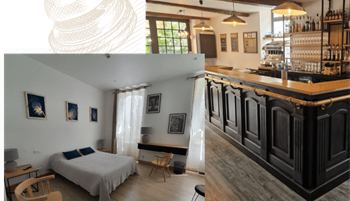
The hotel's rooms offer you a perfect blend of modern comfort and traditional style. The warm and welcoming atmosphere that emanates from our hotel will charm you from the moment you arrive. Featuring either modern or country-style furnishings, the 10 individually decorated rooms provide Wi-Fi, flat-screen TVs, and en suite bathrooms.
As for our restaurant, we offer traditional cuisine with local menus that our chef carefully prepares for you to delight your taste buds. Breakfast is available. There's also a casual restaurant with a covered terrace.
As you depart from Eauze walk with the church on your right and then continue down a minor road and along a grassy track. Pass by a small farm before arriving in Manciet which has a rural bullring used for cattle races. Pass an interesting church, formerly belonging to the Order of the Knights of Malta and by an 18th century milestone that has a Malteses cross.
Arrive into Nogaro, which takes its name from Nogarium, meaning a place planted with walnuts. This small town was established in the 11th century and has a Romanesque church and a bullring.
Ascent: +267m (876ft) / Descent: -323m (1059ft)
Swimming pool, garden, sauna, IT room, tennis.
Family-run hotel with comfortable rooms and free WiFi.
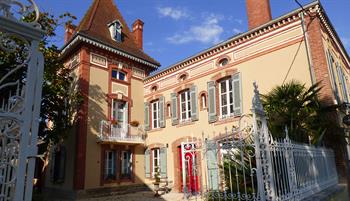
This fully restored mansion achieves the alchemy between respect for the past and the comfort of modernity. the rooms of the Bastide favor calm and refinement, all equipped with a private bathroom and toilet, combining originality and aesthetics, they will welcome you in a setting of comfort and charm. Facilities include air conditioning, free Wi-Fi, outdoor pool, breakfast lounge, garden and lounge.
Today is your final day of walking through these ancient rural routes of France. This day has more walking than the other days on the tour so it recommended that you have an early start. Initially pass by the small farms of La Grange, Bidet and Micoulas. Perhaps you would like to stop for a shady rest in the church porch of Lanne-Soubiran before perhaps having lunch in the in Barcelonne du Gers.
After lunch is the last stretch and here vineyards become rarer and the landscape changes to an area that is tree covered with maritime pines, oaks and chestnuts. Arrive into Aire sur l’Adour, an ancient town of two parts and your final destination.
Ascent: +206m (675ft) / Descent: -244m (800ft)
A lovely 2* hotel with all the necessary amenities and services.
Walking in the Landes region is quite easy has this area is quite flat. The route continues to be waymarked with blue and yellow cockle shell stickers as well as the familiar red and white balises.
You will see your first view of the snow-capped Pyrenees today as you enter the department of the Pyrenees-Atlantiques. Your first stop is Pontet and en route you also pass the magnificent 11th century Church of Miramont Sensacq formerly dedicated to St James and which contains a total immersion font for christening infants. Arrive in Miramont Sensacq, your overnight stop.
Ascent: +202m (662ft) / Descent: -64m (210ft)
A stone house built in 1772, it was restored in 2002. Set in 9 hectares of garden, with swimming pool.
Built in 1743, Chambres d'Hotes La Prade is located on the Way of St James, and offers comfortable rooms equipped with private bathroom, flat-screen TV, and WiFi.
On departing Miramont Sensacq you reach Arzacq-Arraziguet, a bastide town with two main squares. This town has an interesting beginning as when it was founded in the 13th and 14th centuries it was actually in France and not in the Béarn, which was then an independent country. This town used to mark the boundary between France and Béarn.
Pass the modern Church of St Martin in Louvigny and follow the road along the ridge until you reach Fichous-Riumayou and eventually Larreule, the site of a Benedictine monastery founded in 995. The name of this town derives from the word Le Règle meaning monastic rule. When you reach Larreule a pre-arranged transfer (you will need to call the owner the day before) will bring you to your accommodation in Hagetaubin.
Ascent: +448m (1469ft) / Descent: -533m (1729ft)
This 18th century house was converted into a nice guest house by Raoul. There is a swimming pool. This guest house only has shared bathrooms and not ensuite.
Today the hotel owner will transport you to Larruele. In Castillon there is a an 11th century church of St Pierre that was used as a hospital for pilgrims and travellers at that time. The restored Romanesque Chapelle of Caubin, which you also pass by, is on the site of the remains of a former Commandery of the Knight of St John.
Also walk through the long and narrow town of Arthez-de-Béarn (nearly 2km from one end to the other!) which is situated along a ridge. See some interesting old houses and ramparts, remnants from the Wars of Religion.
Ascent: +230m (754ft) / Descent: -269m (882ft)
Hosted by Theresa and James, this boutique B&B boasts 4 cozy bedrooms, a great room with wood-burning fireplace, expansive outdoor patio, spectacular views, and western country design. Fuel up on a hearty, healthy two-course breakfast before you head out for the day.
This morning you will encounter one of the greatest sights of the Camino Le Puy Way, the Cistercian Abbey of Sauvelade, founded by Gaston IV of Béarn in 1128. Before reaching the abbey follow the Gave de Pau from which there are stunning views over the faraway mountains.
Upon reaching Sauvelade it is worth stopping to view the abbey and its statue of St James before continuing on through the farmyard of Labarthe. Then cross a ford before arriving in the medieval bastide town of Navarranx with its rustic and elegant houses. In former times this town had a large population of cagot (outcasts), many of whom became important public figures in the 20th century. Its Italian–style fortifications have lasted until this day and it is worth strolling through this charming and historic town.
Ascent: +451m (1479ft) / Descent: -405m (1328ft)
Located in an authentic Béarnaise building this very comfortable hotel offers a warm welcome.
Located right in the centre of the medieval quarter, this guest house 5 very charming rooms.
As you depart the fortified town of Navarrenx you cross a bridge over the river and head towards Castenau-Camblong with its Béarn-style houses. You will pass two chateaux today, Montgaston and Joantho, the former you can visit, but the latter is privately owned. Once you get close to Aroue you have now crossed from the Béarn into French Basque country. Over the next few days, as you walk from one region to the next, the change in landscapes from green wooded hillsides to steep farm country with lofty conifers becomes more and more apparent.
Ascent: +264m (866ft) / Descent: -258m (846ft)
This accommodation is located in the small hamlet of Aroue surrounded by pretty countryside. You can enjoy a homemade breakfast while sitting on the terrace. This accommodation does not provide ensuite rooms.
This accommodation is set in the countryside and is located in a typical Basque house in the "soule" region. It is built of stone and has Picon tile roof. There is a lovely swimming pool for you to enjoy and 5 comfortable rooms. A homemade breakfast is included.
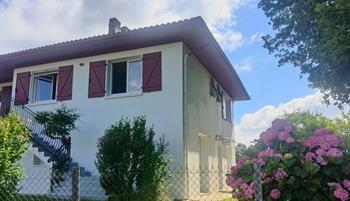
This family operated accommodation hosts pilgrims of all kinds. You can take advantage of free Wi-Fi access, an on-site grocery store, as well as a laundry service.
Back on the GR65 path you will see the Stele de Gibraltar to the right, a stone cross that marks where the three French Camino routes of Le Puy, Vezelay and Tours were thought to have met. Now officially in the Basque country many of the signs are written in the Basque language and in every town and village there is a pelota court (a traditional Basque game).
Ascent: +276m (905ft) / Descent: -355m (1164ft)
A comfortable and cosy hotel in the centre of Saint Palais.
En route to Larceveau you will also go through Ostabat-Asme, a small village today, but in the Middle Ages it was a very important gathering point for pilgrims coming along the different routes. At this time in history the hospitals and inns along the route were able to accommodate up to 5000 pilgrims at a time, but today there is just a gite d’etape and the Maison Optalier.
Arrive into Larceveau where you anticipate your last day of walking along the trail tomorrow and into St Jean Pied de Port.
Ascent: +511m (1676ft) / Descent: -394m (1292ft)
A Clean comfortable family run hotel just outside of Larceveau with authentic food.
Hôtel Espellet is a comforatble accommodation in Larceveau, offering a bar/lounge, and a restaurant that serves French cuisine.
Located in a dominant position and facing south (Hego Alde means “South Side” in Basque), the house offers a view of the bell towers of Larceveau and Cibits, in the distance over the Oztibarre valley and the Belchou peak.
Today is the last stage of the Camino le Puy Way and as you walk along you are constantly greeted with magnificent views of the snow-capped Pyrenees.
Walk through Ainchice Mongelos and see the ancient chapel of Bustince before walking uphill through St Jean le Vieux and arriving in St Jean Pied de Port, your final destination. It is a small town, only 8km from the border of Spain and has ancient cobbled streets and several places of interest, such as the Citadelle, and the Prison des Evêques. Also note the houses built in the Basque-style that have ornate wooden overhangs at roof level. Just as other pilgrims have done you will enter the town along the GR65 by the Porte St Jacques.
Ascent: +256m (839ft) / Descent: -249m (816ft)
Bid farewell to the Camino Le Puy today. After breakfast check out of your hotel and make your onward journey.
This trip has a carbon score of 11kg per person per night, meaning it’s one of our best trips! For comparison, a carbon count of 11kg is equivalent to 2 Neapolitan margherita pizzas. Buon appetito!. Here at Macs, we pride ourselves on being a responsible travel company and continue to adopt, develop and innovate ways to positively impact the environment. Find out more information about how we've carbon counted our trips.
Other Information
Is it for me?The individual stages of this tour range from easy to moderate to moderate in difficulty. However, as the full version includes 36 consecutive days of walking, it is rated as moderate overall. To complete the entire pilgrimage route, you’ll need to be in good physical condition. As you approach the end of the tour, expect more elevation gains while walking through the foothills of the Pyrenees. This tour features basic, welcoming accommodation in rural B&Bs, auberges, and small hotels, with a mix of en suite and private rooms with shared facilities (no dorms). At times, you may stay slightly off the trail with private transfers provided.
Pilgrimages | For those looking to follow a path of self-discovery. Our Pilgrimage and Camino routes take you on a journey through diverse landscapes and local flavours, while meeting like-minded adventurers along the way.
Inn to Inn Walking | Walk from place-to-place changing accommodations each night. Generally staying in B&Bs, inns, and guesthouses.
Solo Travellers, Families with Teens
The minimum age for this tour is: 12 Years
This walk is graded moderate and includes daily walks of 15-33km. The walk is extremely well way-marked and you will also be supplied with turn by turn route notes and detailed maps so you will have no problem following the route each day. On the Le Puy Camino you will follow a mixture of farm/dirt tracks, minor roads and footpaths.
On this self-guided walk in France you will stay in comfortable 1 or 2* hotels.
Please note that on occasion you may not have en suite rooms.
Alternate accommodation
You might be booked into alternative accommodations which are not listed in the description. If those listed are unavailable the alternative accommodation will be of the same or better standard as those described.
Single Rooms & Solo Walkers
If you require single rooms within your party we would be happy to accommodate you although there is a single room supplement payable. Solo walkers are also welcome, and again, a supplement is payable.
Meals
Daily breakfasts and dinners at your hotels are included (except in Saint-Jean-Pied-de-Port). Breakfasts are served buffet-style (please note typical offerings will vary by region and accommodation, ranging from a simple selection to more varied options) and dinners will be the “meal of the day” at the hotel. If you want a choice for dinner you can pay a supplement. You can order packed lunches at your hotel the evening before (ranging from €7 to €10) or you can buy lunch in grocery stores, cafes and restaurants en route.
The route is well waymarked with white and red painted arrows but please take care at intersections. There will always be other walkers around in case you are looking for help. A detailed information pack including route notes, local information and maps will be waiting for you at your first accommodation. You will also have access to the Macs Adventure Smartphone App enabling you to follow the route using your phone's GPS so you will have no problems finding the way. You can simply download the GPX tracks to your phone for offline use and off you go!
Note: Occasionally, our app may deviate from the official route to avoid main roads and heavy traffic. In some newer editions of the Guidebooks, these alternative tracks align with the preferred countryside paths.
- 37 Nights in either 1 or 2* hotels
- 37 breakfasts
- 36 dinners
- Baggage transfers
- Detailed maps, a guide book and information pack.
- Organisational assistance and backup from our partner in France and our UK office
- Travel to the Le Puy-en-Valey and from St Jean Pied de Port
- Lunches, drinks and snacks
- Dinner in Saint-Jean-Pied-de-Port
- Personal equipment
- Travel insurance
- Mountain rescue / emergency assistance
- Additional nights before or after the holiday
This tour can be started on any day between the beginning of April and the end of October, offering flexibility to suit your travel plans. For bookings from October onwards, a supplementary charge might apply due to the out-of-season bag transfer service required.
Snow is possible in early April, particularly at higher elevations on the Camino Le Puy, especially in the Aubrac region. If you plan to begin your journey during this time, be well-prepared for wintry conditions. The weather along the Camino Le Puy varies greatly, reflecting the changing seasons and regional differences.
The closest international airport to Le-Puy-en-Velay is Lyon Airport which is approximately 150km away. Many flights from the UK and other gateways in Europe fly into Lyon. From here you can take a train to Le-Puy-en-Velay which takes approximately 2 and a half hours. Up to date schedule and fare information can be found on the SNCF website. You can also drive to Le-Puy-en-Velay. Parking is available in an underground car park and costs approximately €17.50 per week.
When departing from St Jean Pied de Port it is possible to take the train to all of the recommended airports. To Pau Airport, take the train to Dax and from Dax to Pau (from here you will need to take a taxi to the airport which costs around €20). To Biarritz Airport you can take a train to Bayonne, then another train to Biarritz and from here a bus to the airport. To Bordeaux Airport you can also take a train to Bayonne, then onto Bordeaux and a bus to the airport. Again for train schedules please check the SNCF website.
Baggage transfers are included in the Camino Le Puy trip. Your bags should be left in the reception of your accommodation every morning. Your bags will then be transferred onto your next nights’ accommodation.
Please note that the luggage transfer company have placed a limit of 13kg per person (1 piece of luggage) to be transported from accommodation to accommodation. So please pack accordingly. Please choose a soft bag rather than a hard suitcase as these can be damaged when transported. If you wish to increase the amount of luggage you want to bring the cost per transfer from accommodation to accommodation will be an additional €8.50 per person, per bag. This must be paid for locally.
At Macs Adventure, we work in partnership with many luggage transfer providers who set a limit on how many bags/suitcases they will transfer per person, and also the weight of the bag/suitcase. Your booking includes transfer of 1 bag per person and the weight of your luggage allowed is specific to the destination you will be travelling to. This is why it is very important that you read the luggage information specific to your tour before departure. If you do not adhere to these limits, there is a great possibility that you will be charged locally both for extra bags and/or if they are too heavy. This limitation can be a challenge, especially as airlines generally have limits that are higher. However, our luggage providers have reasons for these limits (usually due to the Health and Safety of their employees), which we must respect.
Towards the end of the tour and as you enter the foothills of the Pyrenees there will be some elevation gains and losses. You will walk through vineyards, rolling hills, hamlets, villages, alongside rivers and streams and over rocky, volcanic landscapes. The terrain will be quite smooth most of the time (except for a few rocky sections), but may be slippery when wet.
We suggest you book as far in advance as possible as the Camino le Puy Way is extremely popular. We will always try and accommodate late bookings but realistically you need to book at least 6 weeks prior to departure.
The tour operates between May and October although we recommend travelling in May or June when spring wild flowers are at their peak, or in September/October when the autumn colours are stunning. July and August can be very hot if you are not used to walking in the heat.
We arrange for your bags to be transferred from your accommodation as per your itinerary and moved onto your next overnight accommodation. Your bags should be left in the reception of your accommodation every morning. Your bags will then be transferred onto your next nights’ accommodation. Your bag should not weigh more than 15kg (per bag, 1 bag per person). This is due to strict health and safety regulations in France.
Your information pack has a detailed equipment list which includes standard walking gear such as good walking boots or shoes, lightweight clothes, waterproofs and a day pack.
We recommend May when the summer flowers are at their best and September/October when the colours are just lovely. June, July and August can be very hot if you are not used to walking in the heat.
Public transport and taxis are available to get you to your next destination.
-
Save %50 Days 49 Nights
Full Italian Via Francigena: Bourg St Pierre-Rome
Walk the full Italian Via Francigena from Bourg St Pierre to Rome.Highlights- Via Francigena, one of Europe's great pilgrimages
- Become immersed in the culture of each region
- Walk through classic Italian landscapes
-
Save %42 Days 41 Nights
Camino del Norte
Walk from San Sebastian along the north coast of Spain to Santiago de Compostela.Highlights- A dramatic, more challenging route to Santiago
- Contrasting fishing villages and modern cities.
- Gaining your Compostela in Santiago.
-
Save %14 Days 13 Nights
Stevenson's Trail Complete
An epic journey through delightfully unexplored regions of rural south west FranceHighlights- Tranquil landscapes of Cevenne National Park
- Follow in Robert Louis Stevenson's footsteps
- Ancient cobbled streets of Le Puy en Velay
-
 WalkingAdventure of the Week: Camino Le Puy WayRead More2 Min Read19 July 2017
WalkingAdventure of the Week: Camino Le Puy WayRead More2 Min Read19 July 2017 -
 CaminoCamino Le Puy Travel GuideRead More3 Min Read13 February 2015
CaminoCamino Le Puy Travel GuideRead More3 Min Read13 February 2015 -
 WalkingCamino Frances and Le Puy Way DifferencesRead More2 Min Read02 December 2014
WalkingCamino Frances and Le Puy Way DifferencesRead More2 Min Read02 December 2014 -
 CaminoWhich Camino is for me?Read More2 Min Read02 February 2021
CaminoWhich Camino is for me?Read More2 Min Read02 February 2021 -
 Camino & PilgrimagesCamino de Santiago Shell Meaning & SymbolismRead More2 Min Read31 January 2025
Camino & PilgrimagesCamino de Santiago Shell Meaning & SymbolismRead More2 Min Read31 January 2025
Why Macs

As Seen In

Around Since 2003

24,000+ Customer Reviews


















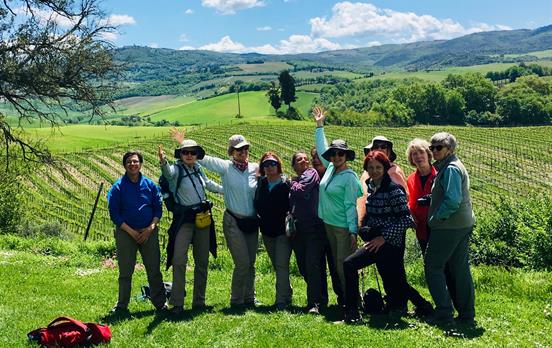
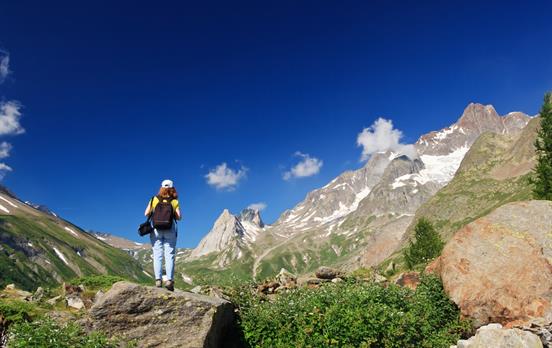
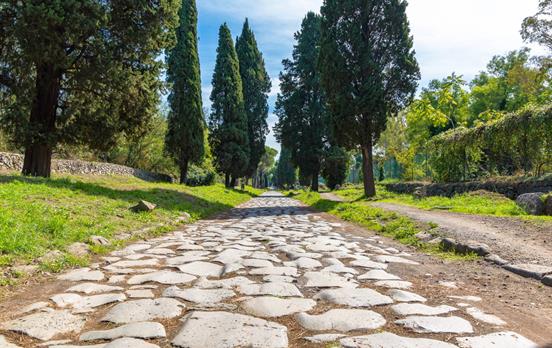
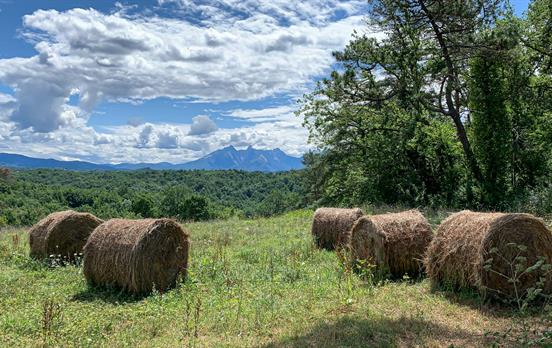
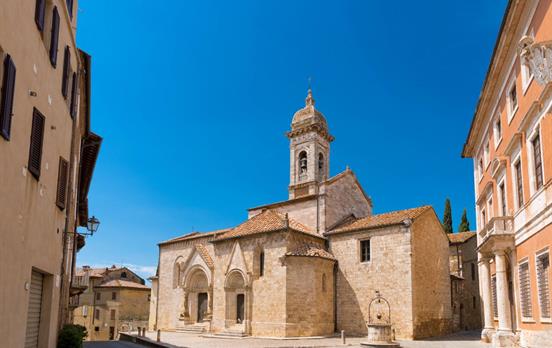
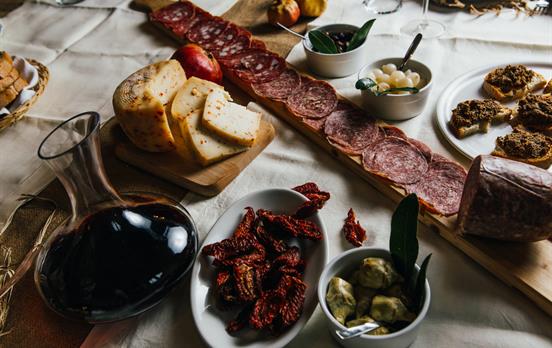
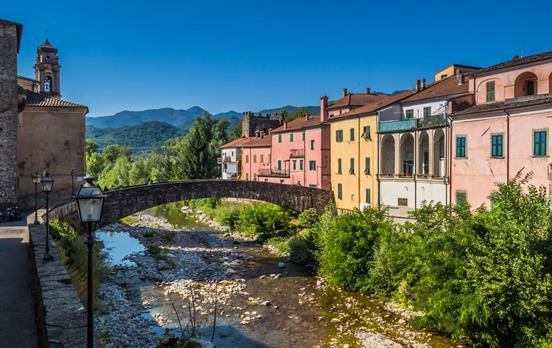
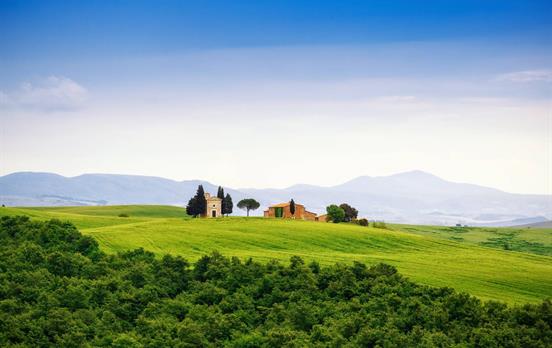
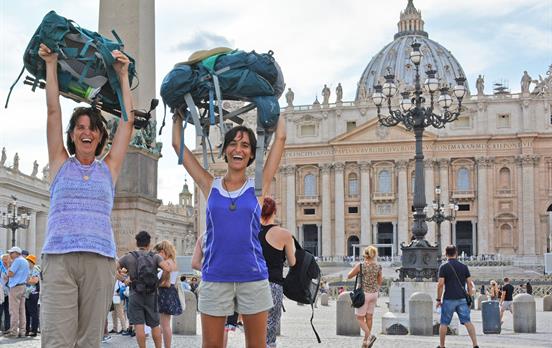



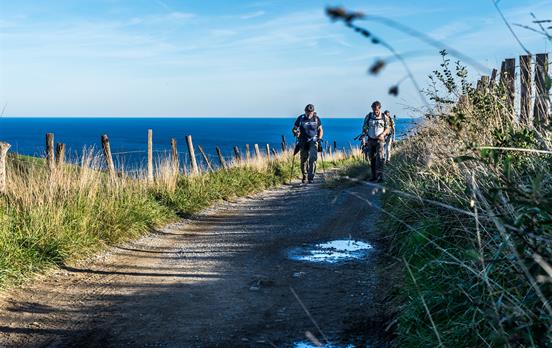
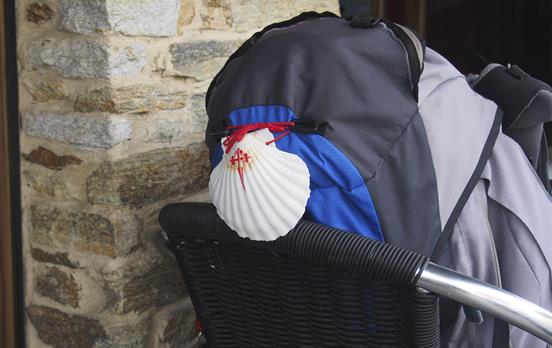

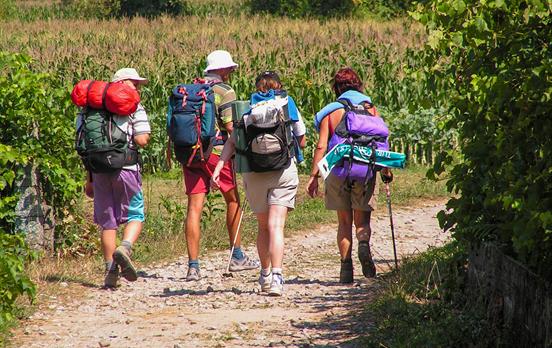
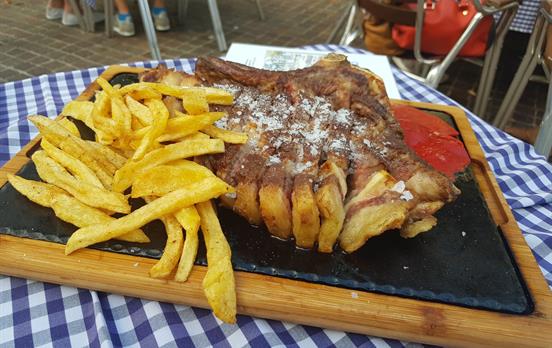
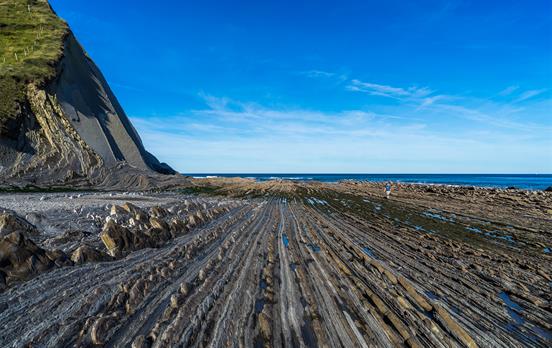
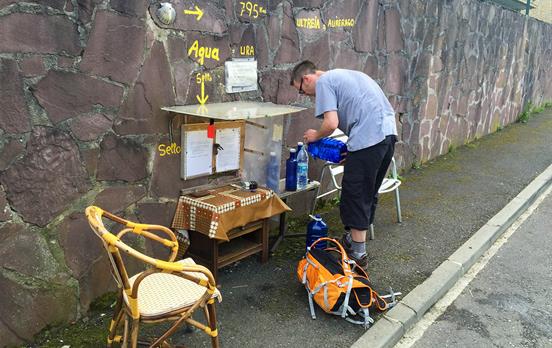
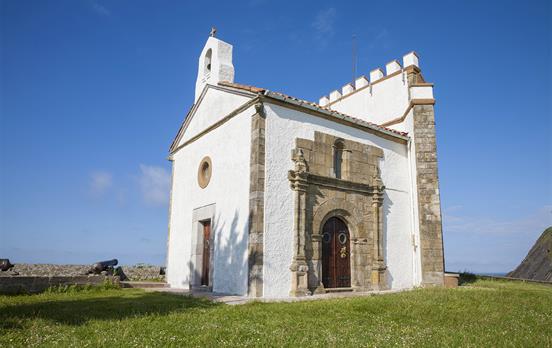



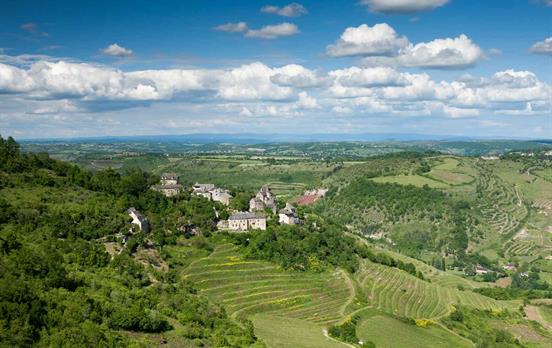
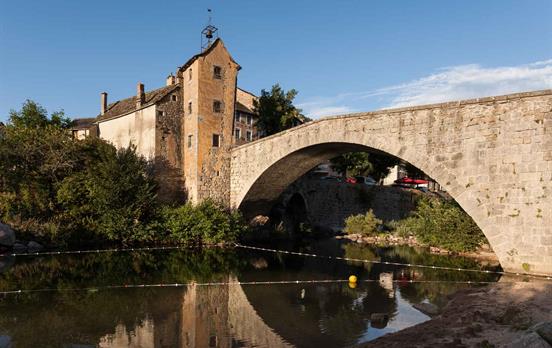
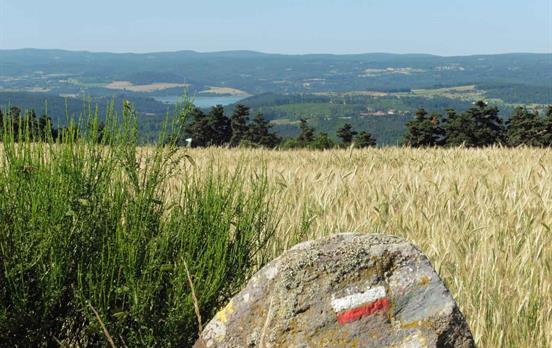
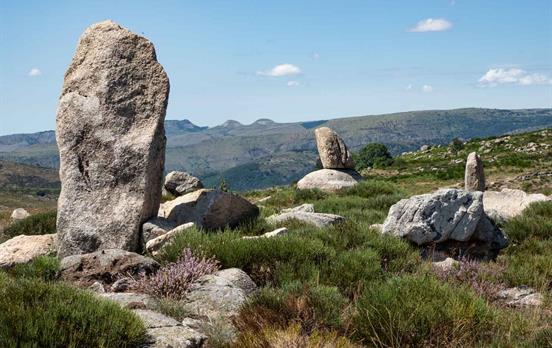
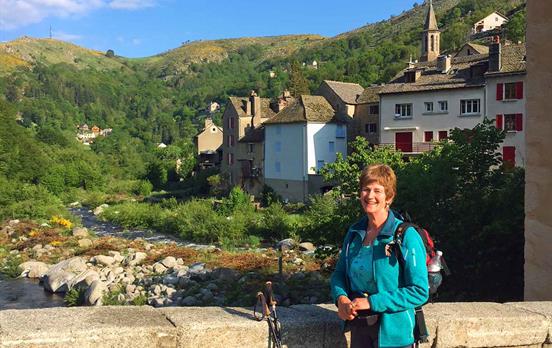
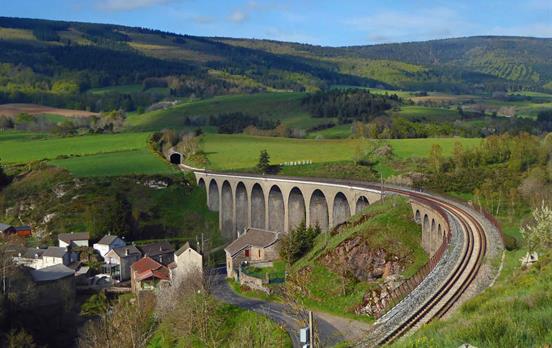

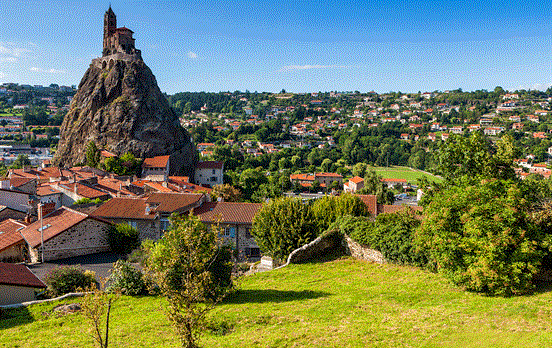
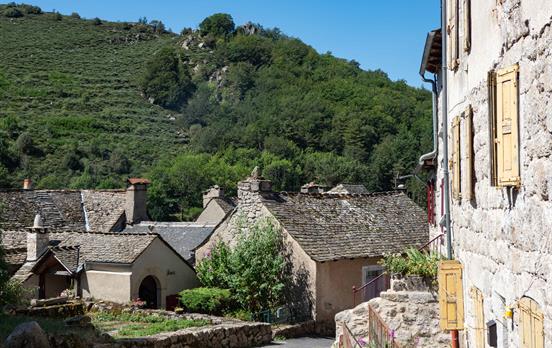







 Canada
Canada